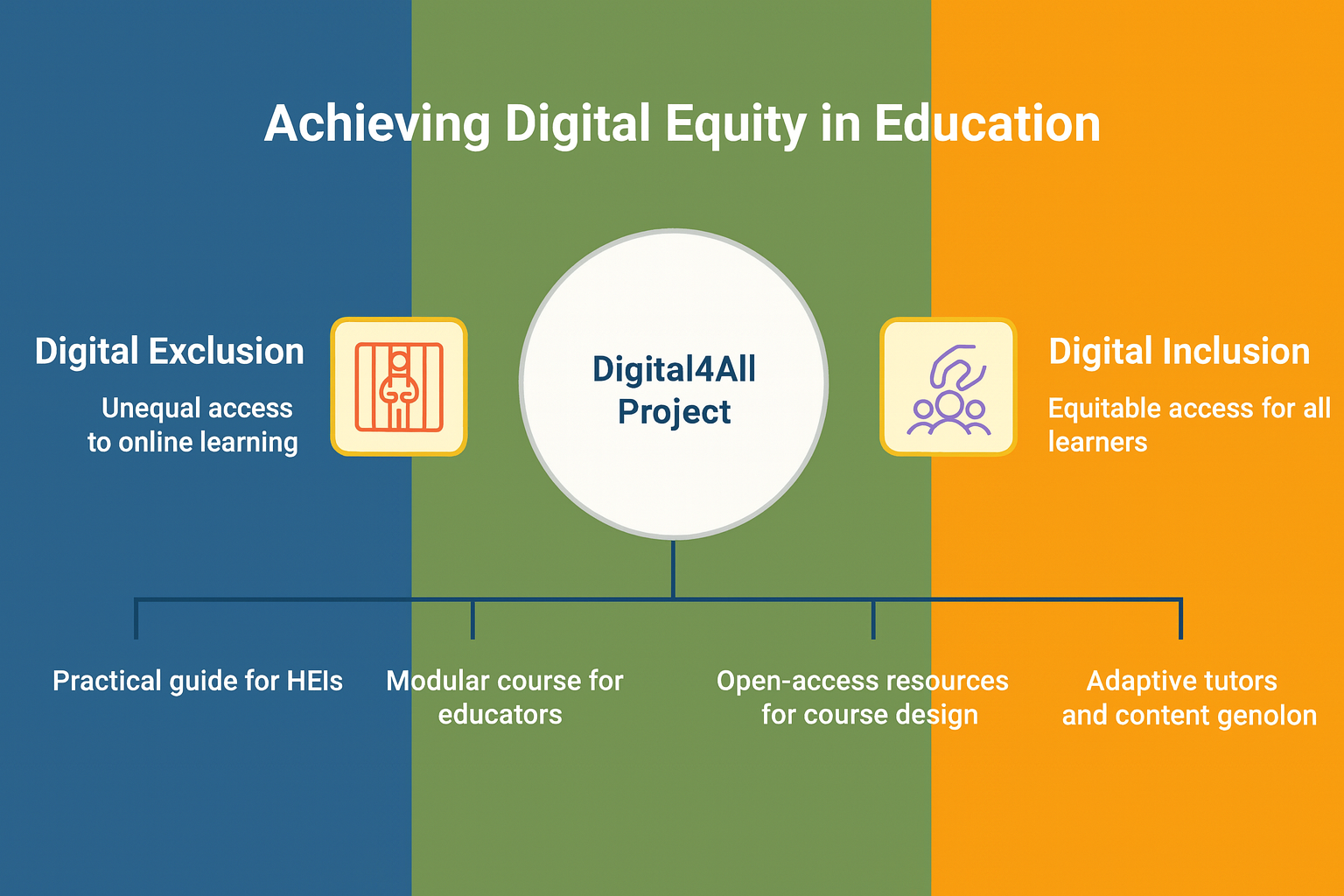Digital4All: Shaping a future where higher education is inclusive by design

As the Digital4All project approaches its conclusion this November, its vision for equitable digital learning in higher education has never felt more vital. Launched in December 2023 with the mission to “build the capacity of universities to develop digital strategies that serve all learners,” the Erasmus+ initiative is now marking the successful implementation and piloting of its core outputs, turning inclusive ideals into new beginnings in real change across Europe.
Reimagining Higher Education for All
Digital4All, delivered through a strong transnational partnership of universities, research institutions, and NGOs, addressed one of the most urgent challenges in the digital era: digital exclusion in higher education. From students with disabilities to those facing linguistic, cultural, or financial barriers, the project has championed a more inclusive approach to online learning, powered by universal design and grounded in EU frameworks, such as DigComp 2.2 and SELFIE.
From Concept to Practice: Toolkit, Training, and Platform Piloted Across Europe
In spring and early summer 2025, academics and university staff participated in the pilot phase of the project’s training programme. The results were promising: educators reported increased awareness, stronger digital inclusion competencies, and immediate changes in their teaching practices. The piloting included:
-
- The Digital Inclusion Toolkit, a practical guide and a unique self-assessment tool for HEIs based on the SELFIE framework.
-
- A modular training course co-developed with and tested by university educators.
-
- The eLearning platform and OER repository, now live, are hosting open-access resources to support inclusive digital course design and delivery.
A Model for the European Higher Education Area
Digital4All is not just a project—it’s a roadmap for systemic transformation. By embedding inclusion by design into the DNA of higher education systems, the project aligns with the European Education Area 2030 objectives and responds to the EU’s Digital Education Action Plan.
From Digital Access to Intelligent Inclusion
In a time when global institutions are embracing EdTech, UNIC, one of the project partners, is pushing the boundaries by exploring AI as a bridge—not a barrier—for marginalised students. This includes testing emerging tools such as adaptive AI tutors, multilingual content generation, and inclusive analytics systems that help educators spot learning gaps in real time (Verbit.ai, OECD 2023). This approach reflects the university’s belief that digital transformation must go beyond converting lectures to screens. It’s about building responsive, intelligent learning ecosystems—capable of adapting to the diverse realities of today’s students.
Campus Without Walls: Towards Borderless Learning
UNIC’s long-standing leadership in distance learning and blockchain innovation naturally extends into borderless, inclusive digital education. The university has piloted the Digital4All training modules in diverse environments—urban, rural, and international-testing for flexibility, accessibility, and cultural responsiveness.
Inclusion by Design, Not Exception
UNIC’s approach reflects arising global policy rules. As outlined in the European Education Area 2030 strategy and the OECD’s call for digitally inclusive systems, the university emphasises inclusion as default: not a reactive fix, but a strategic principle embedded in platform architecture, faculty development, and digital policy frameworks (OECD 2023, EUA 2021).
Looking ahead, UNIC envisions a campus where students, regardless of background, bandwidth, or ability, can engage in high-quality education through dynamic, personalized pathways-paving the way for a new digital equity standard in higher education.
For more information and to access the Digital4All Toolkit, training modules, and eLearning platform, please visit https://digital4allproject.eu/ and https://digital4allproject.eu/e-learning-platform/.
